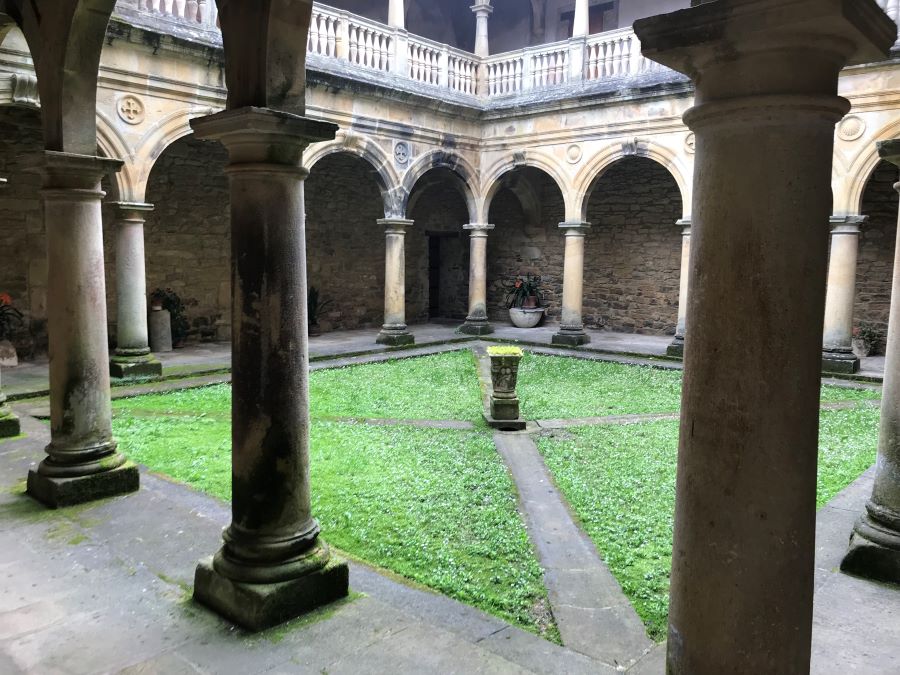I notice many things on this walk – the feel of the mist on my skin, the smell of the forests, the beauty of spring meadows, the sounds of the birds, streams, and cow bells. The sound of distant church bells.
What is more difficult to notice, but which may be more important to the journey, are things that are absent, such as the sound of traffic in the morning, and the absence of biting insects. The bugs may yet arrive this spring, but today there are none.

What I noticed today, however, was an absence of pain. We rarely think about pain when we are free of it, but I noticed it today. With all of the hills I’ve been climbing and descending, I fully expected to be suffering from sore knees and quads. But it just isn’t so. I don’t even have any blisters. By the end of the day, my feet ache a bit, mostly the result of treating them poorly with large daily distances on the Canada walk, but the ache stops almost immediately when I stop to rest. It’s beautiful to be pain free and I’m very grateful for it.

I’ve stopped in a little outdoor cafe in the town of Markina-Xemein for a cafe con leche, tortilla and bread, and a giant chocolate-covered pastry. I’ll wait here for some of my new friends to catch up. It’s not that I walk faster than them; it’s just that I’m ready to leave earlier in the morning and it gives me a few hours of solitude.
Markina-Xemein has had a rough go of it since it became a border post in 1355, built around a fort. The town was born in conflict, and continued to be wreaked in havoc by Napoleon, and during the Carlist Wars and the Spanish Civil War. Today, however, it is more famous for producing champions of the court game called pelota, which seems to be the national sport of the Basque people. Markina-Xemein is now called the University of Pelota.
I wandered into the Sanctuary of San Miguel de Arretxinaga; a hexagonal building founded in the 11th century around three Megalithic stones that seem so precariously balanced that one becomes nervous walking under them.

Birte caught up with me for coffee and we walked the last seven kilometers together to the Monasterio de Zenarruza. Five monks still live here, and in addition to providing accommodation to pilgrims (known as peregrinos), they produce craft beer for tourists.

We are nine pilgrims, from Canada, the United States, Germany, France, Latvia, and Lithuania. We all attended mass together with the monks and then they served us a giant pot of vegetarian noodle soup, with bread and wine. Such great conversation at the table and wonderful camaraderie. And the monks are such great hosts. A perfect day.

